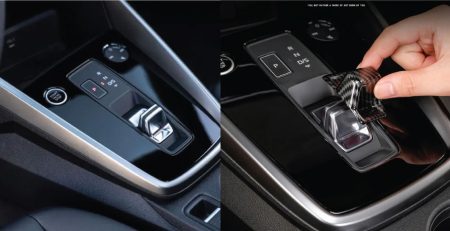What Are The Top Automotive Chemicals You Should Have In Your Garage? Find Out Below!
Hundreds of automotive chemicals are easy to spend. But you don’t have to – because in your garage you only need six basic ones. We’re giving you the list here.
The old joke says you need only two things in your toolbox, duct tape and spray lube. Use duct tape if it moves and shouldn’t. Use spray lube if it doesn’t move and should. While both of these products have their uses, neither is a ‘ one size cures everything. ‘Today’s real theme is “chemicals,” as in, what should I stock in the household repair shop?
It’s easy to get overwhelmed when you scroll through the plethora of choices you can find in our Automotive Chemicals online store. We divide the choices into categories like adhesives, cleaners, lubricants and the like. If you don’t do this as a full-time profession, it doesn’t make sense to buy one of each product.
So what should you have on the shelf as an absolute minimum, the weekend workshop warrior? You asked for it gladly! We have drawn up a list of half a dozen must-have products, divided by category. In fact, in each category, we’ll give you our first and second choices. Here’s the list:
Glue
Things break and some kind of glue or adhesive make an effective repair when they do. If you are a woodworker, there are specialty glues, such as wood glue. But we want single glue that can serve at least 90 percent of your needs.
As the primary glue, we’ve seen many households rely on ‘ super glues. ‘ It has its uses, but we don’t use it much in repairing automobiles. We prefer a two – part epoxy, both for its strength and its ability to fill a gap. Two separate tubes or cans are sold. Put the same amount on a piece of scrap wood or cardboard from each container, mix with a wooden paddle and apply. There’s little waste; just mix as much as you need. Different epoxies have different “pot lives”: one-minute, five-minute, and so on, indicating how much working time you have with the material.
Do you have an Audi or a Volkswagen that is in need of a Chromoly FlyWheel? You came to the right place! Click on the product image below to purchase!
Lubricant
There are many specialty lubes: You can buy lubricant for your garage doors, chain saw or air compressor. What if you don’t own one? What if you only need one all-purpose lubricant for many needs?
We may joke about how ubiquitous it is, but there’s no beating WD-40 as a great all-around lube. The handy aerosol can with the built-in straw is so useful, I have three of them at home; one in the garage, one in the basement, and one in the attic (I obviously don’t want to climb stairs just to find a can of the stuff). The company WD-40 has recently expanded its offerings.
Do you runner-up? I use a lot of silicone spray on all my cars. It is convenient, effective and can be used on most surfaces, leaving no residue.
A Rust Penetrator
Sooner or later, if you’re working on a car that’s over a couple of years old, you’ll have to remove a fastener that’s rustier than thread tightness. Metal rusts, and rust can hold things tenaciously. Here, your friend is planning ahead. You’ll want to soak the affected area at least several hours ahead of time with a penetrating rust ; 12 to 24 hours is even better and several soaks are best.
My father swore by Liquid Wrench. In his workshop (in non-aerosol cans), he had so much of it that things began to eat through the cans and leak! So we knew it was working. The spray boxes are much more convenient today and available in various sizes.
A Cleaner/Degreaser
Most households have a variety of cleaning products, from dishwasher soap to laundry detergent, toilet cleaners, and so on. Be warned that the vast majority of “household” products on your vehicles are NOT safe! We warmly recommend a spray “brake cleaner” as an all-purpose product, assuming that the only cleaner/degreaser you need is for automotive work. However, this may be one of the best kept secrets. Since the product is labeled “brake cleaner”, many might presume that it’s used ONLY on brakes. That isn’t not so. A brake cleaner spray can remove dirt, grease and other nasty things from most hard surfaces quickly and effectively, requiring only a quick cloth wipe. It rapidly evaporates and leaves no residue.
Water – based all – purpose cleaner is awarded second place, which requires you to mix and rinse, but can still clean a lot.
A Gasket Maker
For many years, a glue – forming material in the form of a tube has been available. Maybe you know the label “RTV Silicone,” which many of these products wear. RTV stands for “vulcanization of room temperature,” and the paste-like material becomes semi-rigid like rubber, forming a leak-proof seal between two components. It can be used as a substitute for a gasket or as an additional sealant for an existing gasket.
A Thread Locker
Let’s see, we’ve got glue, a greaser, a lubricant, a penetrator and a gasket maker. We should be good, should we? Not so fast, cowboy. There is one more “must have” chemical, a magical elixir, that is your safety net for difficult or critical repairs. I’ve used it on driveshaft bolts and exhaust manifold studs. I used it on my snow thrower, vibrating like an old washing machine! The secret sauce is a thread locking fluid, which literally “locks” fasteners together to prevent loose vibration. Various strengths are available, distinguished by color. The thread locker ‘Red’ is designed to require heat and physical effort. The ‘blue’ thread locking fluid is more useful, which does a great job of securing parts, but can still be removed with hand tools.
Summary
I saved the best news for the last time: Selecting the six main recommendations and adding their costs (before tax and shipping) is less than $50. Obviously, it is not necessary to spend hundreds of dollars to have a sufficient selection of the most important chemicals in the shop!








